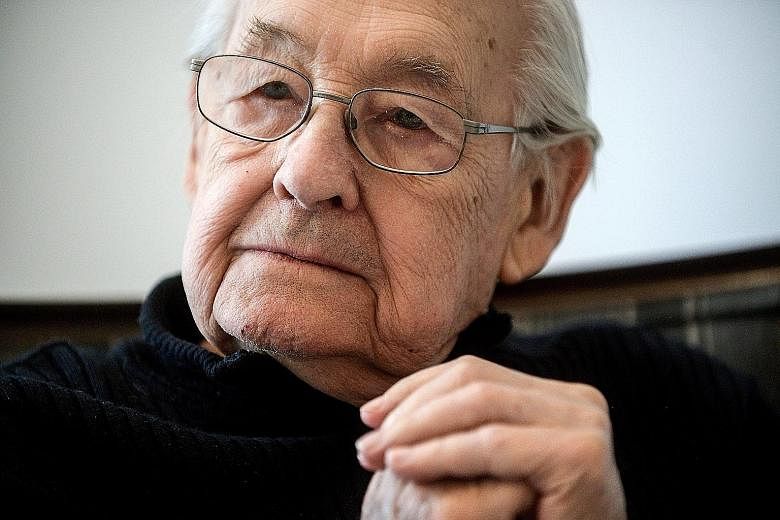WARSAW • A legend in the world of cinema, Polish film director Andrzej Wajda died on Sunday aged 90, leaving behind an opus of acclaimed films inspired by his country's turbulent history.
He died in a hospital of lung failure after being in a medically induced coma for days, a family friend said.
His first films were marked by the painful experience of World War II and the Polish resistance against the Nazis, who occupied the country for almost six years.
Krzysztof Piesiewicz, a Polish director and screenwriter, said Wadja, who was awarded an Oscar for lifetime achievement in 2000, brought a political aspect to his films. "A great artist," he said, "but also one of the founders of Polish freedom, notably through the magnificent painting of our identity."
Film critic Tomasz Raczek said on Twitter: "Polish cinema will be in mourning for a long time."
Wajda was born in Suwalki, north-east Poland. His first feature-length film, Pokolenie (A Generation, 1955), a coming-of-age story of young Poles in Nazi-occupied Warsaw, is considered the debut of a "Polish school of cinema" which delves into heroism and romanticism.
In 1957, he won the Jury Special Prize at the Cannes Film Festival for Canal, on the doomed 1944 Warsaw Uprising by Polish partisans against the Nazis. "That was the beginning of everything," he said in 2007.
His 1977 film Man Of Marble was censored by communist officials for its portrayal of political corruption in the early 1950s Stalinist period, shown through the fall from grace of a Stakhanovite bricklayer.
It was followed three years later by Man Of Iron, on the rise of Poland's anti-communist Solidarity trade union. It won the Cannes Palme d'Or in 1981, even as Poland's then-communist regime cracked down on Solidarity and imposed martial law.
"The day of the Palme was a very important day in my life. But I was aware that this prize wasn't just for me. It was also a prize for the Solidarity union," Wajda had told Agence France-Presse.
The 1981 prize saved him from internment by the communist regime during its martial law crackdown. His opposition to the regime drove him to make films abroad, including Danton (1983) in France, and A Love In Germany (1986) in Germany.
After the collapse of communism in Poland in 1989, he returned to his country's wartime history, focusing on stories suppressed by the communists.
His most recent movies included Walesa: Man Of Hope (2013), on the leader of shipyard workers' protests in 1980; Katyn (2007), a painful portrait of the Soviet massacre of more than 21,000 Polish soldiers during World War II, including Wajda's father Jakub; and Afterimage, which premiered last month at the Toronto Film Festival.
AGENCE FRANCE-PRESSE

